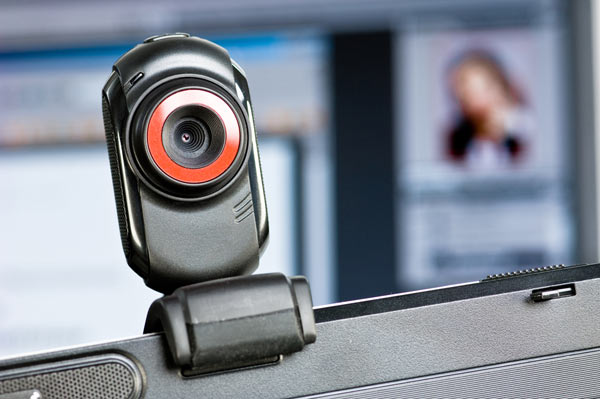
There’s no reason not to be embracing all the potential that social media tools like Skype, LinkedIn and Twitter offer those in recruitment and they are immensely useful not just for generating interest in a recruitment process, but actually delivering it too. True to form, we’re seeing more and more social media being slipped into the interview process as well and now almost all Top 100 recruiters are incorporating some kind of remote interview – whether it’s Skype, Facetime, Twitter or even just a good old phone call – as a part of their recruitment process.
There are obvious cost saving benefits to conducting an interview remotely; it cuts down on travel costs and their environmental impacts and it also eases the pressure on booking out client rooms, but can it really stand in place of a good old-fashioned face-to-face interview? Here are five things you probably didn’t think about when conducting your last remote interview…
It’s less intimidating online…
We all know and probably have an online persona that isn’t quite like us and, in most cases, it’s a slightly improved version of ourselves! However, some of us react the opposite way and video calls and even typed online interviews are very often more intimidating than meeting face to face.
So much of our communication methods are non-verbal and the difference between an answer (or a question) being taken as a joke or being taken seriously can be just a wry smile. If your connection is lagging you can expect that to be totally lost and this plays in the subconscious of many interviewees.
It’s all off-the-cuff…
The one great drawback of the Skype interview is that it’s completely possible to be looking up information while you’re being asked a question. Sure, you can hear the keystrokes, but a bright interviewee will have several windows of good notes open and will be more than prepared to flick between them as you’re questioning them.
Equally, unlike a face-to-face interview where you can see if your interviewee is taking notes or paying attention, it’s a little harder online. Make sure your interviewee is listening and answers the questions you asks, not just issues a prepared speech.
Everyone uses Skype these days…
Most of your interviewees will use Skype and perhaps it’s even an indicator of their good IT skills, but don’t expect your interviewees to be forthcoming in arranging a way to get in touch. If you want to hold a remote interview, you need to prepare the software and make sure your interviewee is happy with the connection.
Unfortunately, a bad connection can really spoil what someone is trying to say. Even if it’s clear for you, an echo at their end can really be off-putting. Don’t let this spoil a good candidate’s day, just pick up the phone instead.
They’ll have done this before…
Though we hear a lot in the press about how many interviews graduates are having to go to before getting a job, it’s not true that everyone will be extremely experienced in online interviews. You shouldn’t let this fact get in the way of what could otherwise be a very productive interview.
We’ve all been on that call when someone has mistakenly walked into the room or the cat jumps on the camera. This isn’t always bad preparation, sometimes it’s just bad luck so you can afford to forgive these errors.
They’ll open up straight away
A remote interview is usually still used as a pre-cursor to a face-to-face interview and candidates know this. They might not know, however, that you won’t be conducting the face-to-face interview and therefore they might be reluctant to give away all their good information at once for fear of having nothing left in person.
The best way to counteract this is to have a section of web capital devoted to the interview process. Be clear about the protocol, let them know if you’re looking for competencies or key values and just check they know the process before you bombard them with questions. Treat the remote interview as if it were final.
We’re sure to see remote interviews taking more precedence over the next few years and as they get more common our techniques should become more refined. Until then, forgive the technical errors, do your best with bad connections and slow typing and make sure your put your (probably very nervous) interviewee at ease.
Tom started his career early; taking on an associate role at Deloitte just a few days after his eighteenth birthday, working in a technical role but with a focus on identifying and recruiting talented undergraduates. He is now entering his final year at Exeter University and he continues to work with the recruitment side of the firm and remains an active brand ambassador on campus.
Over the last few years, Tom has spent time building up a reputation as a freelance writer and has developed both a strong client base and good knowledge of social media along the way. Though there’s still plenty to learn, experience working in both the smallest and the largest of businesses has served him well and given him a feel for balancing strong corporate ideas with a personal tone.
As a student, Tom is able to offer a valuable insight into the way graduate recruitment works from the other side and how students and interns react to particular styles of marketing and recruitment. Eventually he hopes to take off his copywriting business before embarking on an MA in philosophy.